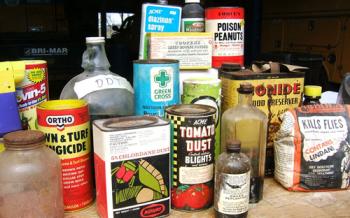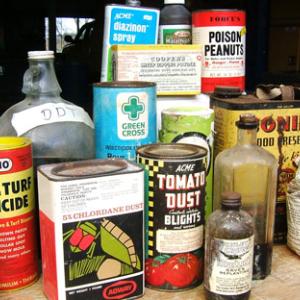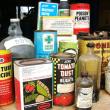Registration opens for free pesticide disposal events in October
Do you have unwanted pesticides? Maine’s Obsolete Pesticide Collection Program offers a safe, free way for homeowners and family-owned farms to dispose of outdated or unused pesticides. One-day collection events will be held in Presque Isle, Bangor, Augusta, and Portland this October.
The program is a joint effort of the Maine Department of Agriculture, Conservation and Forestry’s Board of Pesticides Control (BPC) and the Maine Department of Environmental Protection. It is designed to protect public health and Maine’s natural resources by preventing improper pesticide disposal.
Key Information
- Event Dates: One-day collections in October 2025 in Presque Isle, Bangor, Augusta, and Portland
- Registration Deadline: Friday, September 26, 2025 (pre-registration required; drop-ins not permitted)
- Who Can Participate: Maine resident homeowners and family-owned farms
- What’s Accepted: Obsolete or unwanted pesticides and spray adjuvants, including herbicides, insecticides, rodenticides, fungicides, and disinfectants
- How to Register: Visit thinkfirstspraylast.org to complete the inventory form and registration instructions
- Note: Registrations must be submitted by the person currently possessing the pesticides. Materials collected on behalf of others will not be accepted.
Why This Matters
Improper disposal of pesticides can pollute soil, groundwater, and surface water, posing risks to humans, pets, livestock, and wildlife. Since 1982, Maine’s Obsolete Pesticide Collection Program has safely diverted more than 250,000 pounds of hazardous pesticides from the waste stream.
Collected materials are transported by a licensed hazardous waste contractor to specialized, out-of-state disposal facilities that meet strict environmental safety standards.
“This program provides safe and environmentally responsible disposal of unwanted pesticides for homeowners and family-owned farms,” said Karla Boyd, BPC Policy & Regulations Specialist. "By participating, people are directly protecting our land and water for future generations.”
Safe Disposal Starts with You
Always read and follow pesticide label instructions for proper use, storage, and disposal. For additional tips, visit the U.S. Environmental Protection Agency: www.epa.gov/safepestcontrol/safe-disposal-pesticides























